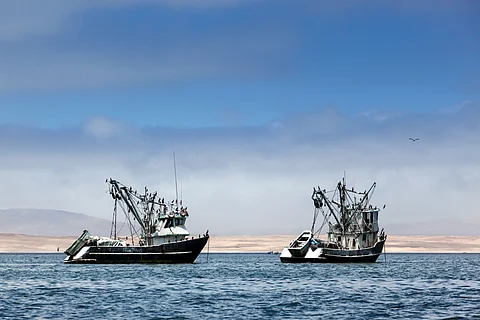

“Better targeted fisheries support and better management are essential to improving the profitability and resilience of the sector," said OECD Secretary-General Mathias Cormann.
Photo: Adobe Stock.
Billions of dollars in government subsidies are keeping the global fishing industry afloat - but much of this support is fueling overfishing, illegal practices, and environmental degradation, according to a new review from the Organisation for Economic Co-operation and Development (OECD).
The OECD Review of Fisheries 2025 reports that nearly two-thirds (65%) of government support in 41 countries and territories contributes to overfishing and illegal fishing when not paired with effective fisheries management.
Covering economies responsible for 79% of global fish production, the OECD report finds that subsidies often go toward fuel costs, vessel construction, and operational expenses rather than ensuring long-term sustainability - and warns that without stronger management and oversight, poorly directed financial support can exacerbate unregulated and unsustainable fishing practices, threatening marine biodiversity, local economies, and food security worldwide.
Redirecting these funds toward better enforcement of fishing laws, stock assessments, and crisis support for fishers could help mitigate these risks while strengthening the resilience of the sector, the OECD argues.
“Sound fisheries and aquaculture management, including through policies tackling illegal, unreported and unregulated fishing, are fundamental for protecting local livelihoods, global food security and ocean ecosystems” said OECD Secretary-General Mathias Cormann in a press release.
“Better targeted fisheries support and better management are essential to improving the profitability and resilience of the sector," he added.
Governments worldwide are pouring an average of $10.7 billion annually into the fisheries sector, with six economies - China, Japan, the U.S., Canada, the EU, and Brazil - responsible for 85% of global fisheries subsidies.
With China alone accounting for over a third (36.1%) of all fisheries support, followed by Japan (12.4%), the U.S. (11.0%), Canada (10.7%), the EU (8.0%), and Brazil (6.4%), these nations hold significant influence over global fisheries policy, the OECD points out.
In a bid to provide new insights to inform discussions at the upcoming Third UN Oceans Conference (UNOC3) taking place 9-13 June in Nice, France, the OECD is urging governments to rethink their approach, advocating for a shift in subsidies from vessel expansion and fuel costs to measures focused on sustainability.
"To make the sector more resilient, the Review calls for redirecting funds currently allocated to subsidising fuel and the construction, acquisition and operation of vessels towards activities that are key to ensuring the sustainability of global fisheries. These activities include research on assessing the status of fish stocks, enforcing fishing laws and regulations and targeted time-bound income support for fishers affected by crises like such as marine heatwaves," the OECD said.
